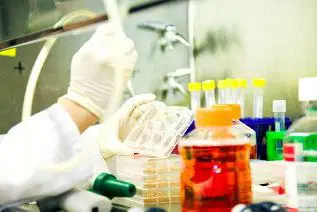In her inaugural lecture at Lead City University, Ibadan, Oyo State, Prof. Rosemary Audu, a Professor of Medical Virology, emphasized the urgent need to strengthen laboratory capacity across Africa to achieve Universal Health Coverage (UHC). The lecture, themed “Challenges and Prospects of Laboratory Diagnostics in Africa: Dismantling the Puzzle,” addressed the significant challenges faced in laboratory diagnostics on the continent.
Prof. Audu, who is a member of the World Health Organization Africa Medical Devices Forum and Director of the NIMR Biobank, underscored that “laboratory diagnostics are indispensable for disease detection, surveillance, control, and management.” However, she pointed out that the current state of laboratory services is hindered by various challenges, including inadequate infrastructure, outdated equipment, insufficient and demotivated personnel, limited funding for healthcare, disruptions in the supply of reagents and consumables, inconsistent quality assurance measures, and weak regulatory frameworks.
To tackle these pressing issues, Prof. Audu proposed several key recommendations for governments and stakeholders. She emphasized the need to prioritize the training and retention of skilled laboratory personnel through continuous education, certification programs, and mentorship initiatives. “This focus will ensure quality diagnostic services,” she noted.
Prof. Audu also advocated for enhanced collaboration among laboratory medicine practitioners, stating that teamwork will ultimately benefit patients and improve health outcomes. Furthermore, she highlighted the critical role of innovation and commercialization of diagnostic products in enhancing healthcare delivery. “Supporting local research initiatives focused on disease diagnostics and developing context-specific tools is vital for addressing the unique health challenges faced by the continent,” she concluded.
Her call to action urges stakeholders to recognize the importance of laboratory capacity in achieving comprehensive healthcare and ultimately improving health outcomes across Africa.

